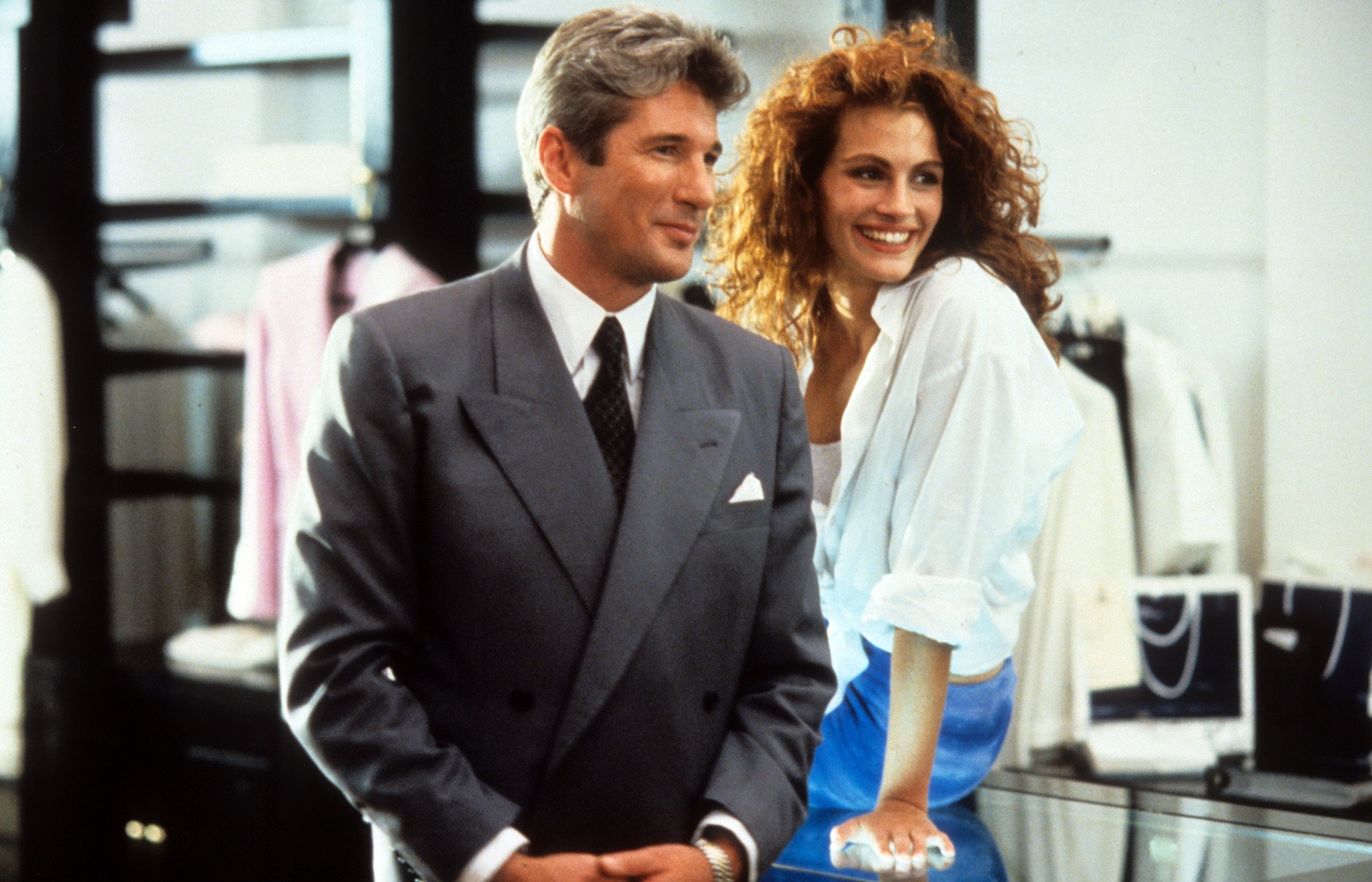‘Pretty Woman’ Almost Had a Less Iconic Title Tied to 1 Pivotal Scene
In many ways, the 1990s were a defining time for movies. The decade saw the rise of high-budget blockbusters and many of the modern film conventions we still see today. While the decade set the standard for a lot of aspects of modern Hollywood, in the realm of romantic comedies, the ’90s perfected the art.
The genre was refined from its early roots into a reliable staple of modern films by classics from the decade, and right at the beginning of all of it was 1990s Pretty Woman. Over 30 years later, the film is still a fan favorite but it turns out that it almost had an entirely different name that may not have inspired such a legacy.

A new type of romantic comedy
Pretty Woman wasn’t a revolutionary story. It’s in a long line of screenplays like the classic My Fair Lady that tip their hat to George Bernard Shaw’s classic Pygmalion. Still, the characters themselves and how the romance was developed were fairly new for the genre.
Critics were a bit taken aback at the movie telling a story from the perspective of, what was considered at the time, the “dark sides” of both white-collar and blue-collar life. Time Magazine reviewer Richard Corliss said at the film’s release:
“No one has yet made a romantic comedy in which, say, a toxic-waste dumper falls for a terrorist hijacker … But Pretty Woman comes close to finding the least admirable characters to build a feel-good movie around.”
The movie was also much more focused on storytelling and nuance than previous romantic comedies, which usually just spent time developing chemistry between the leads and focused on that. Pretty Woman was a compelling story partly because it wasn’t even supposed to be a romantic comedy.
Originally, it was supposed to be a dark edgy drama about a heartless financier and a drug-addicted sex worker until it was retooled during development, according to IMDb. The romantic comedy chemistry between Gere and Roberts onscreen synergized with the high concept story so well that it would set a new paradigm for the genre for decades.
3000?
The iconic scene of Julia Roberts shopping on Rodeo Drive with Roy Orbison singing the classic titular song was a one-of-a-kind moment in classic cinema, but the movie was originally supposed to skip the Orbison reference altogether. The classic was originally supposed to be named 3000, according to Stacker.
The screenplay and production went by the product when the vision was still to make a movie that was a gritty, dark drama. The name was a reference to Lewis offering Ward $3000 to spend the week as his escort, which the final version would later include as what she receives for a wardrobe.
Fans can probably be glad that the movie ended with the name it did. While the original name may imply that the movie may still have contained some form of that iconic shopping scene, it’s pretty likely it wouldn’t have been near as fun if it had come out under the original name.
‘Pretty Woman’ was a major hit
The film follows Gere’s Richard Lewis, a high-powered corporate raider, as he develops a relationship with prostitute Vivian Ward, played by Roberts. The two have a chance meeting and Lewis hires Ward to be his escort for the week while he is in town for work. As is usually the case in romantic comedies, the two have undeniable chemistry, and their arrangement grows into something much more.
Pretty Woman was released in 1990 to immediate commercial success. Starring Richard Gere and Julia Roberts, it would skyrocket the latter’s career into the iconic decades since the film, and it would rejuvenate Gere’s faltering success at the time.
The film experienced immediate commercial success, and is still Disney’s highest-grossing R-rated film, gaining over $170m at the box office during its life according to Box Office Mojo. The film pulled elements from familiar stories but came together in a far different way than audiences or critics expected.


